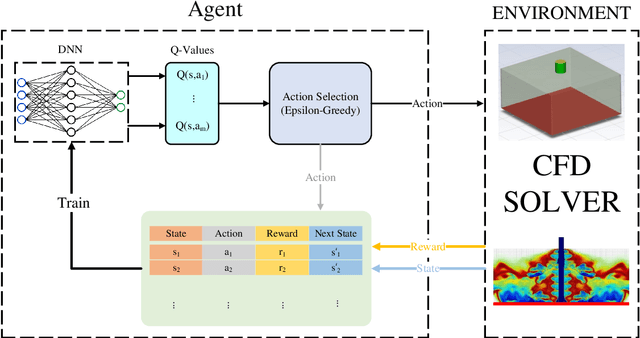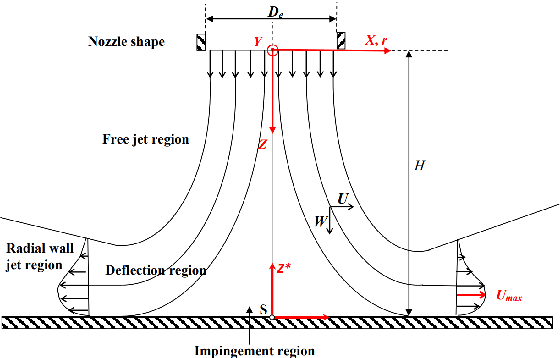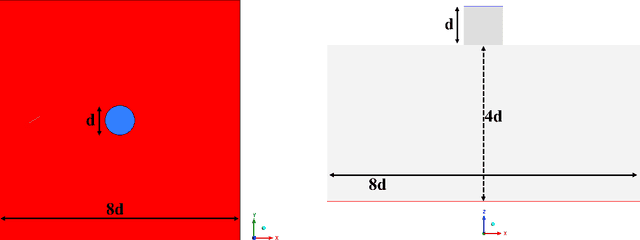Deep Reinforcement Learning for the Heat Transfer Control of Pulsating Impinging Jets
Paper and Code
Sep 25, 2023



This research study explores the applicability of Deep Reinforcement Learning (DRL) for thermal control based on Computational Fluid Dynamics. To accomplish that, the forced convection on a hot plate prone to a pulsating cooling jet with variable velocity has been investigated. We begin with evaluating the efficiency and viability of a vanilla Deep Q-Network (DQN) method for thermal control. Subsequently, a comprehensive comparison between different variants of DRL is conducted. Soft Double and Duel DQN achieved better thermal control performance among all the variants due to their efficient learning and action prioritization capabilities. Results demonstrate that the soft Double DQN outperforms the hard Double DQN. Moreover, soft Double and Duel can maintain the temperature in the desired threshold for more than 98% of the control cycle. These findings demonstrate the promising potential of DRL in effectively addressing thermal control systems.
 Add to Chrome
Add to Chrome Add to Firefox
Add to Firefox Add to Edge
Add to Edge